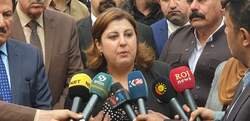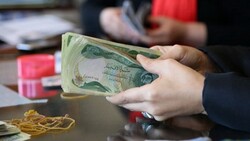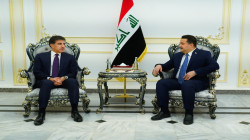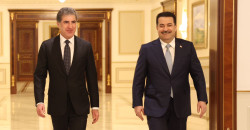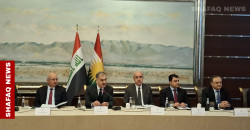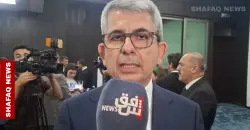Will KRG delegations to Baghdad settle 15-year-old disputes?
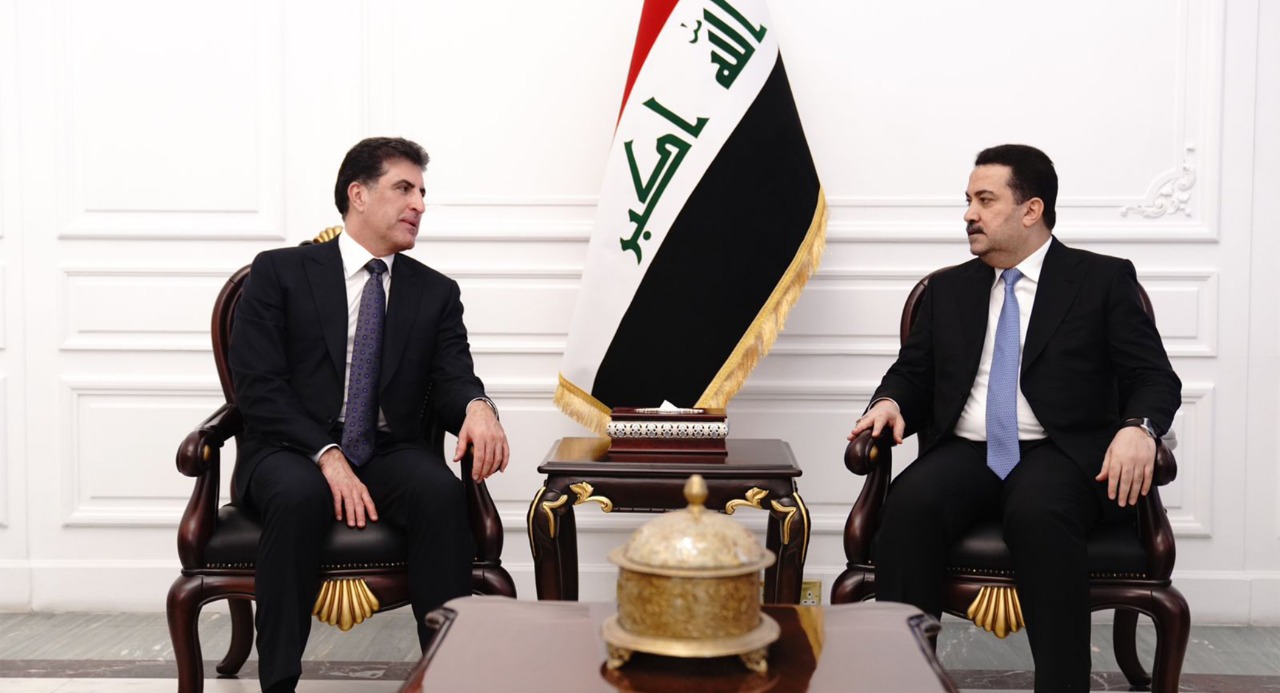
Shafaq News / Kurdistan's Regional Government (K.R.G.) continues to work to resolve the serious problems with Baghdad. However, while politicians affirm Mohammed Shia al-Sudani's administration's commitment to doing so, particularly regarding the budget bill and the oil and gas law, observers believe that resolving the issues accumulated for 15 years cannot be accomplished by exchanging negotiating delegations for a few days.
Nechirvan Barzani, the president of the Kurdistan Region, traveled to Baghdad on November 27 to wrap up talks with Iraqi political figures about the budget, Peshmerga payments, Article 140, oil and gas issues, and other topics - which he had to put on hold because of the recent bloody explosive incident in Duhok.
Last Chance Government
According to observers, al-Sudani's government is serious about addressing the pending issues between Baghdad and Erbil because the delegation from Kurdistan is in Baghdad to discuss what was agreed upon with the coordination framework during the discussions to form the ministerial cabinet.
Ghazi Kakaai, a member of the Patriotic Union of Kurdistan (P.U.K. ), stated that "this administration differs from its predecessors in that it is seen as the government of (last resort) or (golden opportunity). It was created following disagreements that lasted a whole year. As a result, it joined the State Administration coalition with the other players in the political process and included the resolution of thorny issues between Erbil and Baghdad in its government program."
Kakaa'i continued, "Therefore, especially in the State Administration Coalition, all political parties must be serious about upholding the agreements. Consequently, the Iraqi political system will be saved if the current administration can carry out its program; otherwise, it would be the end of the current political system."
"As a result, this government will be more serious about implementing the demands of the political parties, which are the requirements of the Iraqi street, as well as legislating the oil and gas law."
Leader in al-Fatah Alliance Fadhil Jaber emphasized the seriousness of al-Sudani's administration in resolving the issues between Erbil and Baghdad regarding the budget and oil and gas laws, saying that "the visit of the Kurdistan Region's president, Nechirvan Barzani, to Baghdad was to resolve many issues between the two parties."
According to Jaber, "the parties discuss these topics quietly away from political tensions and the media, to reach common points that solve the outstanding problems between the two parties," he noted that "the budget law and the proportion of the region of it, as well as the problem in the export of oil in the region after the decision of the Federal Court of unconstitutionality, are discussed between the two parties continuously and thoroughly."
Delegations cannot solve 15-year-old problems in two days
On the other hand, many observers think that sending negotiating delegations for a day or two to the federal capital is not the best way to resolve the issues between the governments of Erbil and Baghdad, as "these issues are the results of 15 years of differences. Therefore, if all parties, especially the Kurds, are sincere about resolving issues, they must increase their influence and join forces in Baghdad," according to apolitical analyst Saman Noah.
Regarding Baghdad's position, Noah stated to Shafaq News Agency that "the federal government has been delaying the resolution of these problems for years, as it is trying to buy time, which is in its favor, considering that Kurdistan cannot impose its will as it did in the past, or from 2003 to 2013, where the region was then strong on all the security, political, and economic levels."
He continued, "The decline that occurred in the region is due to the differences between Kurdish parties and the deteriorating economic and financial situation, which weakened the role of the Kurdistan Region in the Iraqi scene. Moreover, Baghdad was looking for such an opportunity to continue to undermine the solid foundations of the partnership demanded by the Kurds, namely, the application of Article 140, the Oil and Gas Law, and the formation of the Federal Council, which would restore balance to the Iraqi state."
"There are also differences over the Peshmerga's budget and manpower levels, as well as Baghdad's demand to deploy federal forces on the borders with Turkey and Iran, which Erbil may refuse because it would diminish the region's influence in Iraq."
The majority of political parties, particularly Shiites, Noah said, "are not currently seeking clear agreements on these complicated issues, but will prefer to postpone them to a later time, which means putting Iraq in an unstable scenario."
